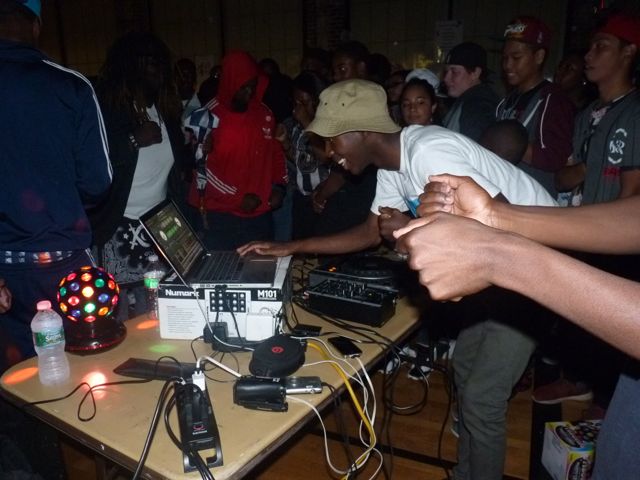As long as he was committing crimes, Jersey City native John Doe’s main concern was to stay alert of police and those who would “snitch” on him to them.
But as John — not his real name — matured and corrected his life, he understood the word he was so much against and found another perspective. Snitching is slang meaning to inform, “tattle-tell,” or “rat,” said John. He now believes the word is two-faced.
“Today most misinterpretation of snitching [comes from] people who [are] doing the crime [and are] offended when they tell on each other,” said John. People “who witness a crime and report it to law enforcement are not really snitching.”
Reporting others’ actions is and was always discouraged within American communities says Marc Lamont Hill, professor and author at Temple University. He writes that Judaic, Islamic and Christian laws all portray bad-mouthing and hearsay negatively.
“[Repeated phrases] like ‘don’t be a tattle-tale’ and ‘snitches get stitches’ serve as early childhood reminders for many Americans, irrespective of race and class, of the moral and [practical] consequences that accompany snitching,” Hill writes.
The negative portrayal of “telling” on one another has seeped into the culture of the students and the school. Being a snitch is the last thing students want to be labeled. Senior Daryl Lewis and freshman Ciana Velazquez said they sometimes second guess whether to inform on another because of how others might view them. Lewis said it’s an unspoken code among students to not tell.
“People might label you a snitch,” said Lewis. “They’ll be like ‘he [is] not the type of dude to be around’.”
Recently, the phrase “Snitches get Stitches” has been popularized on T-shirts and songs by artists like the Fall Out Boys and Lil Wayne.
The phrase, said Jersey City Detective Victor Cherry, is a form of witness intimidation. He said witness intimidation is a daily occurrence in the city and gangs promote this intimidation because they have something to lose when informants assist police, which affects crime and cases.
“Cases are solved by people who give information,” said Cherry, “[there are] unsolved crimes when [we] can’t get people to cooperate.”
In a recent survey by The National Center for Victims of Crime, one half of youth surveyed in Massachusetts who witnessed or experienced gang related crime did not report it. In the survey, 64 percent said that they have a fear of being beaten up, 18 percent didn’t want to get involved, 10 percent didn’t like/trust police, and 8 percent fears being labeled a snitch.
It’s now seen as a form of witness intimidation in not only law enforcement, but in the school.
“It puts fear into [students],” said Crisis Coordinator Michele Bruce.
Bruce said many students live by the phrase and that it makes it difficult to do her job, resolve situations, and keep everyone safe. She said she experiences this 80 percent of the time when it comes to situations with students and this has occurred in the series of thefts in the school.
Junior Benjamin Singleton said he first heard the phrase when he told on someone for stealing money. Senior Daryl Lewis said he witnessed someone get beaten up for telling on another.
“They knocked his two front teeth out,” said Lewis.
Singleton said he hates the phrase and that if the truth is needed, then it should be told, Lewis said that he does not like the word or phrase because it’s a way to put people down.
“It’s just another way of belittling people and making them feel bad about telling on someone when they know that it’s right,” said Lewis.
Hill and Bruce said that telling on another creates an ethical and social dilemma.
“An individual must sacrifice one set of loyalties for another,” Hill writes. “The potential snitch is forced to choose between competing ethical codes and social commitments when making their decision.”
According to Bruce, self-esteem issues play a role in what choices students make.
“It’s a form of pressure to go against what you know is the right thing to do, to what your peers say to do,” said Bruce.
Hill writes that there is a difference between snitching and witnessing. A witness is a key to truth and justice, but a snitch is motivated by self-interest. John said snitches benefit from telling, whether it is to protect themselves or gain money.
“Almost a decade ago when [I] was involved in illegal activities, I was snitched on to benefit someone else’s hardships,” he said. “My incarceration gave the person that told less time.”
Cherry said that the first solution to changing the misconception is having understanding between citizens and police about the difference between snitching and doing your civic duty.
Doe believes there will always be a two-faced misconception of the word snitch as long as you have law abiding citizens and criminals.
“All that’s done in darkness will come to light; either by law-abiding citizens, snitches, or video cameras,” said Doe. “Only those who have something to hide will worry about who’s a snitch and who’s not a snitch.”




